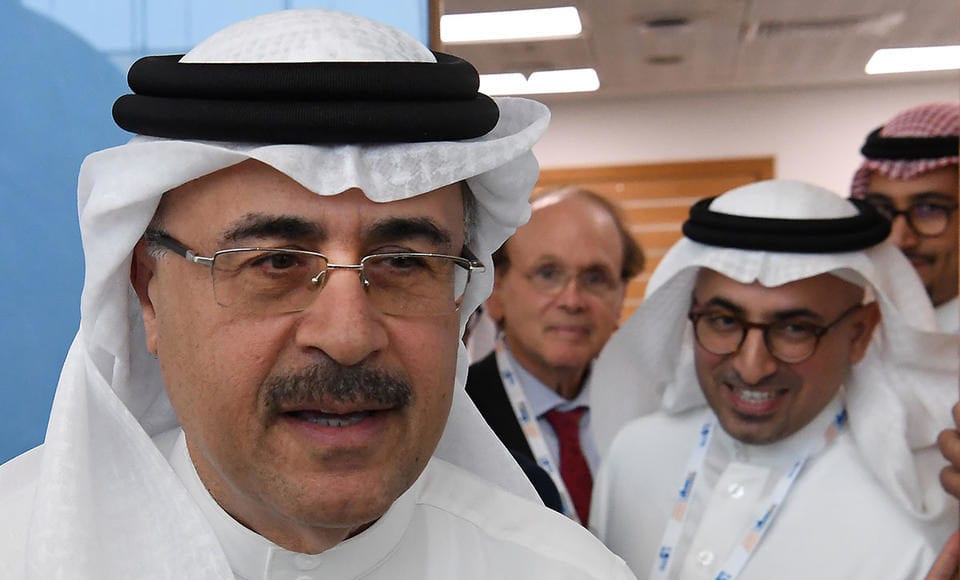(Bloomberg) Aramco’s quick recovery from the attacks on its Abqaiq oil facility shows resilience and flexibility that’s without parallel in the industry, proving to the world that Saudi Arabia is a reliable supplier, said Chief Executive Officer Amin Nasser.
State-run Saudi Arabian Oil Co., which is the world’s most valuable company, has well-drilled emergency response units and massive flexibility built into its facilities, Nasser said. The kingdom is also working to make its industry less dependent on Abqaiq and improving defenses at its plants, he said.
“The whole world saw that Saudi Aramco, which is the central bank of oil, can respond to any unforeseen events,” Nasser said in a Bloomberg TV interview in Dammam. “There was no interruption to our international customers.”
The September missile and drone attack on the Abqaiq plant and the Khurais field, which the U.S. blamed on Iran, caused the single worst oil-supply disruption and sharpest price spike in history as more than 5 million barrels a day of output was taken offline. Yet the crisis rapidly abated as Aramco restored capacity at the facilities and repaired the damage.
“In Abqaiq we have something that’s unmatched in the industry” in terms of flexibility and the ability to respond to sudden incidents, Nasser said. The plant is built to be resilient, with a system called a “super dump” that saved vital equipment by quickly draining and de-pressurizing it. “We were able to bounce back regardless of what you hit us with.”
As tensions with Iran continue to dominate the Middle East, Saudi Arabia is working to beef-up its resilience to attacks. Aramco is ensuring that its emergency response teams are fully trained and business continuity plans are in place, Nasser said. The government is also implementing extra defense measures at oil facilities, he said.
“We are assured that our facilities are safe,” Saudi Energy Minister Prince Abdulaziz bin Salman said in an interview in Dammam.
The kingdom’s dependence on Abqaiq, which stabilizes about 5 million barrels a day of crude, is also diminishing, Nasser said. The Khurais oil field, which was also hit by drone and missile strikes in September, can itself process 1.5 million barrels a day of oil, and the Manifa facility can handle 900,000. Saudi Arabia currently pumps about 9.87 million barrels a day, he said.
“Slowly, we are making sure that stabilization is happening outside Abqaiq,” Nasser said.
Source: Bloomberg





